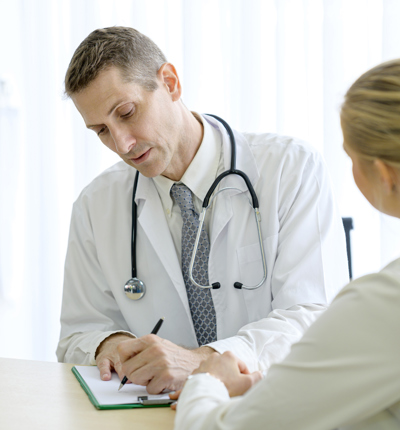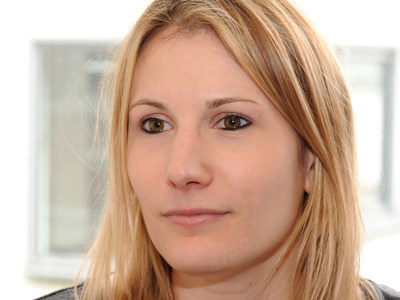
Cancer issues during COVID-19 – Some good news?
Healthcare solicitor Kirsten Wall reflects on the impact of COVID-19 on cancer care.
Posted on 30 June 2020
It will be welcome news to individuals suffering from cancer, and no doubt their families, that it is being reported the NHS will shortly be able to start clearing the backlog of treatment put on hold while they quite understandably focused on treating those suffering from COVID-19.
Once the number of patients requiring hospital treatment for COVID-19 reduces, the NHS can begin the task of working through the large backlog of patients needing surgery and other treatment. In addition, the crucial cancer screening programmes will also be able to re-start.
Having worked on many medico-legal cases where concerns were raised by my clients about a delay in the diagnosis of their cancer, I know only too well that in order to maximise the chance of successful treatment and survival, the earlier the diagnosis is made, the better.
Over the last months I have been worried as I kept reading about the drop in the number of people seeking advice for concerning symptoms that could indicate cancer, the reduction in cancer referrals being made for investigations and the delay, or cancellation, of investigations and treatment for cancer.
The number of cancer patients affected by this is estimated to be as high as two million, with the majority being those waiting for screening for breast, bowel and cervical cancer, which was paused at the start of the outbreak.
While initial hospital consultations have still been taking place, the number of diagnostic tests able to be performed have reduced. We are likely to see cancers of the lung and gastro-intestinal tract most affected as they require more involved procedures like endoscopies and bronchoscopies for the diagnosis to be confirmed.
Surgery to treat cancer has been the most affected treatment, given it is fairly resource-heavy, often requiring an ITU bed.
Figures released by The Institute of Cancer Research suggest that over the course of a year an estimated 92,912 patients would undergo surgery to treat their cancer. A three-month delay to those patients could result in an additional 4,755 deaths.
In an attempt to keep cancer treatment going during the lockdown, ‘Cancer Hubs’ were set up around the country. They were to focus on treating people with cancer, in particular those needing surgery, with the possibility of using private hospitals to assist where appropriate.
Hospitals also set up COVID-Free Zones, requiring staff and patients to self-isolate before attending, although more reliable, widespread and frequent COVID-19 testing is needed to fully protect vulnerable patients and make these more efficient centres for cancer treatment.
So, it seems like cancer services have been able to continue to some degree during the COVID-19 epidemic but as soon as the resources are available it is crucial that normal service resumes for cancer patients to detect and treat their disease as soon as possible.
COVID-19 – screening and GP provision
Cancer screening is a well-established part of the care we get from the NHS with approximately 200,000 people being screened each week before the COVID-19 outbreak. This well-ordered screening programme for some of the most common types of cancer allows them to be caught early so that successful treatment can be performed and the chance of long-term survival increased.
Routine screening is responsible for the diagnosis of five per cent of all cancers each year. The worry is now that having paused this national programme during the COVID-19 epidemic, the message has been sent that screening can wait. And it can’t, and mustn’t be. I hope that the NHS has put plans in place to deal with this large backlog, and to remind people of the importance of attending for screening when invited.
If people are concerned about symptoms that might be a sign of cancer, they would usually contact their General Practitioner without delay. It is, of course, entirely understandably in the current situation that patients would feel anxious to go to their GP Surgery. We all caught on quickly to the message to stay at home and avoid groups of people – clearly sitting in a GP waiting room is something we would all want to avoid at this time. Unfortunately, this has resulted in a drop in the number of people seeking crucial medical advice. The number of urgent cancer referrals GPs have been making to Hospitals for their patients have dropped by 25% and as high as 50% in some places. To put this into perspective, Cancer Research UK estimate that this equates to over 2,300 cancer cases not being diagnosed each week. This is a terrifying number! But is this just because people aren’t going to their GPs or are GPs more reluctant to refer?
GPs are still offering appointments but the majority of consultations are by telephone or some sort of video call. I wonder whether patients are still able to express their concerns in quite the same way by these mediums. And also, is the GP’s job made harder by not being able to physically examine, and fully observe their patient, to make a full assessment?
The message to GPs is that referrals can continue (although they are advised to monitor the progress of this referral) and extra caution must be taken if a referral is not immediately made by detailed safety netting. They should also make sure they follow up with patients to see if their symptoms are persisting.
It is likely that patients with the well publicised ‘red flag’ symptoms of cancer such as rectal bleeding or a breast lump will be more likely to seek out medical advice but those with somewhat vaguer symptoms, such as weight loss and fatigue, may be less likely. In addition, people with a cough may put this down to COVID-19.
Having worked with patients and their families who have experienced the devastating affects of a late cancer diagnosis the importance of still seeking medical attention if you are worried cannot be overstated.


